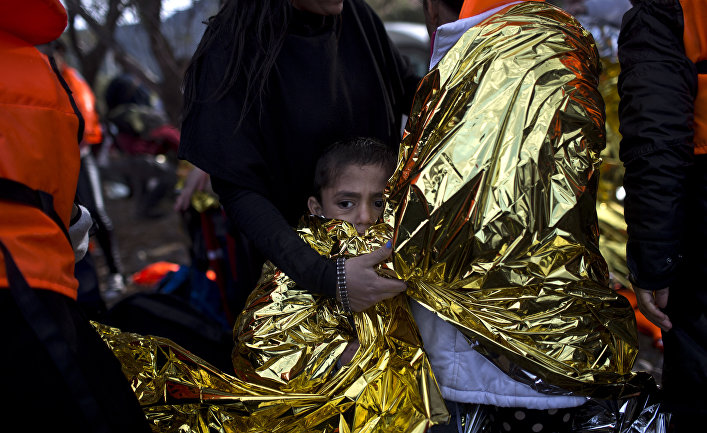There are approximately 4,000 people hoping to get to Europe in Greece's Lesbos island. Most of them departed from Turkey by boat. Six boats carrying approximately 50 people arrive to the beaches of Lesbos daily. 100 people have died and at least 3,100 people were lost in the sea due to capsizing of boats on the way to Greece this year.
UN records declare among the causes of death are “because frustrations experienced by migrants resulting in tensions are getting out control.” One of the reasons of this “rising tension” — which caused 7 deaths (4 of them were children) on October 16 — is migrants' fear of Europe's closing borders. But Europe keeps calm and is placid while accepting the migrants in a systematized way. There is no doubt that the migrant issue has caused a stir in Europe's stable agenda, but it is not such a big issue as seen from Turkey.
The Latest on migrants/refugees: Greek prime minister laments migrant tragedies, blames Western nations: https://t.co/LaVXxrf0HJ
— The Associated Press (@AP) October 30, 2015
While we are focusing on migrants' stories, Europe is focused on their system. Municipalities integrate every single refugee, who manages to pass the border into Europe's social security system, in terms of welcoming, registering, providing temporary or permanent shelter, household goods, income, language lessons, children's education, and employment. It's not a severe crisis — except that the integration takes time, there is a rising need for employment and refugees are in fear that the existing social benefits and help would disappear. NGOs are organized through social networks, though there are not many Turkish institutions. There is an allocated budget for language education for the migrants. Although it is expected that migrants will learn the language of the country in 1.5 years.
U.N says almost 220,000 migrants, a record, reached Europe by sea in October: https://t.co/fHxoV74qIP pic.twitter.com/KJZGGLXAUh
— Reuters Top News (@Reuters) November 2, 2015
Most of the refugees are men. This is why the Dutch ultra-rightwing leader defines them as “testosterone bombs.” This has echoed in public discourse as well — Dutch protesters in a campaign against the mayor call refugees “pedophiles” as some of them get married at an early age. Although this and other similar marginal reactions make the headlines, majority of the people do not agree with these opinions and outcries and regard them as “freedom of expression.” The influx of refugees is also a cause for the rightwing European parties and leaders getting more votes. But experts don't see them being elected. For instance, it is widely believed that the Dutch King never gives a mandate to Geert Wilders to form his government.
Swedish Foreign Minister says country is 'collapsing' due to migrants https://t.co/SH9NzFaB82 pic.twitter.com/ACsPdBGSVf
— Daily Mail Online (@MailOnline) October 30, 2015
Almost all of the refugees to Europe are well-trained, well-dressed, they use social media. They are aware of the social systems and the rights of all the European countries and they are demand those rights. Meanwhile, there are not only Syrians in this refugee influx. There are migrants from Afghanistan, Somalia, and Eritrea, for example, and some of them have to be separated. In Europe some regard opening of borders to migrants as a duty, while others consider it as a danger to the welfare system. Salafi movements (an ultra-conservative orthodox movement within Sunni Islam)are watched closely in all of Europe. But they don't prevent Salafists from entering into refugee camps and setting up dialogues. In short, everything is under control.
Centers of 10 Largest Arms Factories are in the US and Western Europe
In the meantime, there is a huge difference between Western Europe's income through arms sales and money spent on refugees. For instance, England was the second in the list of countries to sell most arms in 2013. But the French have had the biggest increase in armament sales. Ten largest arms manufacturers are in the US and Western Europe. Their share in sales in 2013 has been 50.3%. The volume of arms transfers between 2010-2014 is 16% higher that it was between 2005-2009. Five largest exports between 2010-2014 belong to the US, Russia, China, Germany, and France. These constitute 74% of all arms sales. Though the countries where those arms are sent to are the same. Arms import has increased to 45% in Africa, 37% in Asia and Australia, 25% in the Middle East.






